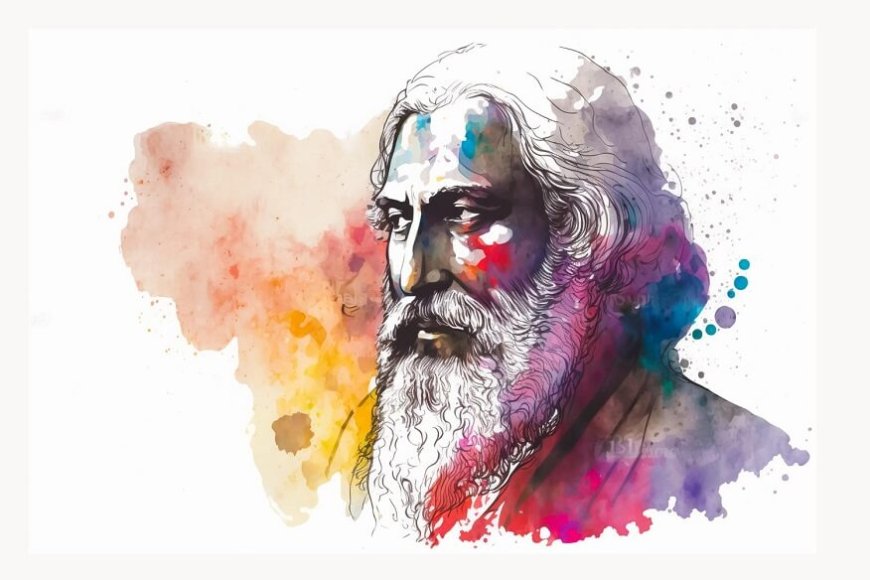Rabindranath Tagore
Best Indian Writer Rabindranath Tagore

Rabindranath Tagore (1861-1941) was a polymath, a poet, philosopher, musician, playwright, painter, and the first non-European to be awarded the Nobel Prize in Literature in 1913. Tagore's lifestyle was characterized by a rich blend of creativity, intellectual pursuits, and a deep connection with nature. Here are some aspects of Rabindranath Tagore's lifestyle:
-
Early Life and Education:
- Rabindranath Tagore was born into a prominent Bengali family in Calcutta (now Kolkata), India. He belonged to a family of intellectuals, and his father, Debendranath Tagore, was a leader in the Brahmo Samaj, a reformist religious and social movement in India.
-
Education and Literary Beginnings:
- Tagore was largely homeschooled in his early years and began writing poetry at a young age. He received a formal education at the University of Calcutta but left without completing a degree.
-
Santiniketan:
- In 1901, Tagore founded a school, initially called Brahmacharyashrama, later known as Visva-Bharati University, in Santiniketan, West Bengal. The school aimed at providing an education that combined the best of Western and Indian traditions.
-
Literary Contributions:
- Tagore's literary contributions are vast and varied. He wrote poems, short stories, novels, plays, and essays. Some of his notable works include the collection of poems "Gitanjali," the novella "The Home and the World," and the play "The Post Office."
-
International Travel:
- Tagore undertook several international journeys, connecting with influential thinkers and artists worldwide. He engaged with figures like Albert Einstein, W.B. Yeats, and H.G. Wells, fostering a global perspective in his works.
-
Music and Art:
- Tagore was a prolific composer and musician, creating numerous songs, often referred to as Rabindra Sangeet. He was also a painter, experimenting with various artistic forms, contributing to the Bengal School of Art.
-
Philosophical Outlook:
- Tagore's philosophy emphasized the harmony of different cultures and the interconnectedness of humanity. He was a strong advocate for cultural exchange, education, and mutual respect among diverse communities.
-
Connection with Nature:
- Tagore had a deep affinity for nature, and this love is often reflected in his works. He found inspiration in the beauty of the natural world, and the environment at Santiniketan was designed to encourage a harmonious relationship with nature.
-
Social Reformer:
- Tagore was not only an artistic and intellectual figure but also a social reformer. He spoke out against social issues like caste discrimination and advocated for women's rights and education.
-
Nobel Prize and Legacy:
- Tagore was awarded the Nobel Prize in Literature in 1913 for his collection of poems "Gitanjali." His literary and philosophical contributions had a profound impact on Indian and world literature.
Rabindranath Tagore's lifestyle was marked by a harmonious integration of art, education, and social consciousness. His vision of an inclusive and interconnected world continues to inspire generations, and his contributions have left an enduring legacy in various fields.
What's Your Reaction?
























































